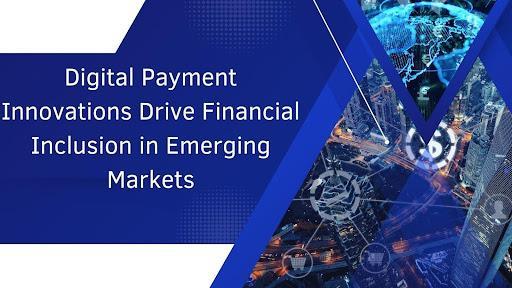
In today’s fast-paced technological landscape, digital payment platforms are revolutionizing financial inclusion in emerging markets. Traditional banking is giving way to agile, tech-driven solutions that harness modern architectures, robust APIs, blockchain, and real-time analytics to overcome longstanding infrastructure challenges and serve underserved communities. Visionary technologist Utham Kumar Anugula Sethupathy bridges complex digital frameworks with practical financial solutions, empowering transformative approaches for truly inclusive economic growth.
Innovative Architecture Uniting Diverse Technologies
At the core of these digital payment solutions is a sophisticated architecture that seamlessly integrates multiple technologies. Robust API-driven frameworks facilitate secure data exchange and enable seamless communication between disparate systems. Blockchain technology enhances transaction transparency and efficiency by automating processes through smart contracts while reducing fraud risks. Advanced analytics powered by artificial intelligence and machine learning provide real-time insights, allowing for rapid risk assessment and adaptive decision-making. Additionally, mobile-centric designs ensure that even in areas with fluctuating connectivity, payment systems remain reliable and user-friendly. This technical fusion not only improves the speed and security of transactions but also creates a scalable foundation capable of evolving alongside market demands.
Sector-Specific Innovations Reshaping Everyday Transactions
Innovations in digital payment platforms are not confined to a single industry; they are transforming multiple sectors simultaneously. In the agricultural sector, digital solutions are reducing transaction costs and enabling immediate access to funds, thereby supporting farmers in remote areas. In healthcare, secure payment gateways integrated with digital record systems enhance billing efficiency and protect sensitive patient data. Similarly, retail and e-commerce platforms benefit from omnichannel payment systems that streamline transactions and foster enhanced customer engagement. By tailoring these technical frameworks to address the unique challenges of each sector, innovators are fostering environments where financial services are more accessible and efficient, thus contributing to broader economic participation without relying on outdated infrastructures.
Securing and Scaling Transactions for Tomorrow’s Demands
Ensuring the security and scalability of digital payment systems remains a top priority amid rapid technological advancements. Multi-layered security protocols encompassing encryption, multi-factor authentication, and behavioral analytics help protect sensitive financial data and minimize fraudulent activities. Blockchain-based solutions further contribute by creating immutable records that secure every transaction. In parallel, modern cloud infrastructures, containerization, and microservices architectures enable these systems to handle surge volumes during peak periods without compromising performance. By incorporating advanced security measures and scalable integration patterns, innovators can confidently deploy digital payment solutions that not only safeguard user data but also adapt swiftly to increasing transaction loads and evolving regulatory requirements.
Embracing Future Trends for Continuous Innovation
Digital payment platforms are on the brink of a technological revolution as emerging technologies drive enhanced user experiences and increased financial inclusivity. Artificial intelligence is revolutionizing the industry by refining fraud detection systems and delivering personalized recommendations based on individual user behaviors. Blockchain technology is maturing to provide faster, more secure settlement processes that reduce transaction times and enhance trust. Meanwhile, the integration of Internet of Things (IoT) devices is enabling automated, embedded payment solutions that simplify everyday transactions. Advances in offline processing are proving essential for regions with unreliable connectivity, ensuring continuity and access to financial services. As regulators demand higher security and transparency, these innovations work in tandem to create robust, efficient, and user-centric digital payment ecosystems. These advancements promise a vibrant future.
In conclusion, Utham Kumar Anugula Sethupathydigital payment platforms are critical tools in bridging the financial divide in emerging markets. Leveraging seamless API integrations, blockchain security, real-time analytics, and AI insights, they enhance operational efficiency while expanding financial access for underserved communities. Their evolution underscores the need for scalable, secure, and adaptive frameworks, ensuring digital innovations create a more inclusive global financial landscape and deliver technological benefits to every community.